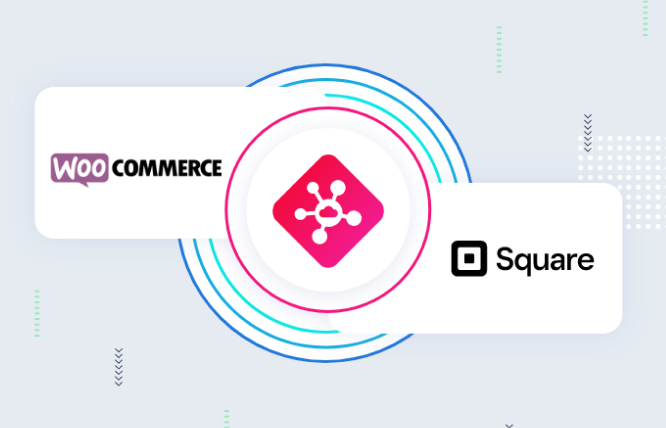The WooCommerce Shopify integration offers a plethora of benefits. However, make sure you are well aware of the associated integration ways and important factors.
Shopify and WooCommerce tend to be towering giants in the land of eCommerce. Both tend to cater to a distinct bunch of needs. Here, Shopify is commonly associated with quality built-in features and user-friendliness, and WooCommerce presents unparalleled customisation. Often, many eCommerce professionals associated with an ecommerce development company ask the question – is it possible to make good use of both? A simple answer here is – Yes.
The WooCommerce Shopify integration paves the way for a highly efficient synergy, which could make a reliable foundation for an online store. This point is often expressed by today’s leading WooCommerce web developer professionals, too.
Essentials to Know About Shopify and WooCommerce
Shopify comes with a comprehensive suite of built-in eCommerce features. It is fairly easy to begin with Shopify, which makes it wonderful for beginners.
Shopify features include but are not limited to:
- Marketing tools
- Inventory management
- Secure payment gateways
Shopify is easy to start with, making it ideal for beginners. However, its overall customisation options are not as many as those of WooCommerce. This point is often stated by Shopify plus agencies.
While WooCommerce is a reputed open-source plugin for WordPress. Additionally, WooCommerce is known for its massive plugin ecosystem that lets you tailor your store to your requirements. What you get with WooCommerce?
- Extensive customization options
- A vast plugin ecosystem
WooCommerce and Shopify can connect to streamline your workflow. Plugins like Shopify Connector for WooCommerce enable syncing products, categories, and orders between stores. This can be useful if you’re migrating from Shopify or want to manage both platforms centrally.
WooCommerce Shopify Integration through Third-Party Tool
#1 Zapier
Zapier allows you to create automated workflows (called “Zaps”) between WooCommerce and Shopify. For example, you can set up a Zap to automatically create a new Shopify product when a new product is added in WooCommerce.
Steps to Integrate WooCommerce and Shopify using Zapier
Sign Up for Zapier
- Go to Zapier and create an account if you don’t already have one.
Create a New Zap
- Click on “Make a Zap” in your Zapier dashboard.
Set Up WooCommerce as the Trigger App
- Search for “WooCommerce” and select it.
- Select the trigger event, such as “New Product”.
- Connect your WooCommerce store by entering your API credentials. You can obtain these credentials from your WooCommerce Admin Dashboard under WooCommerce > Settings > Advanced > REST API.
Configure WooCommerce Trigger
- Specify any filters or conditions if needed (e.g., trigger only for specific product categories).
- Zapier will fetch a sample product from WooCommerce to test the trigger setup.
Set Up Shopify as the Action App
- Search for “Shopify” and select it.
- Select the action event, such as “Create Product”.
- Connect your Shopify store by entering your API credentials. Obtain these credentials from your Shopify Admin Dashboard under Apps > Develop apps > Create an app.
Configure Shopify Action
- Map the data fields from WooCommerce to Shopify to ensure product details are correctly transferred (e.g., product name, description, price).
- Zapier will send a test product to Shopify to verify the setup.
Activate the Zap
- Review the Zap setup and turn it on. Your Zap is now active and will automatically create new Shopify products whenever a new product is added in WooCommerce.
Custom API Integration for WooCommerce Shopify Integration
To achieve a seamless integration between WooCommerce and Shopify, you may need a custom API integration. This involves developing a middleware application using a server-side language like Node.js or Python. If your team lacks the expertise, consider hiring a specialized development company. Here’s how they can assist:
Fetch Data from WooCommerce
Use WooCommerce API to fetch products, orders, or customer data.
Python
Set Up Periodic Synchronisation
Schedule the middleware application to run at regular intervals using a task scheduler like cron (Linux) or Task Scheduler (Windows).
Reasons to go with WooCommerce Shopify Integration
Many are skeptical about WooCommerce Shopify integration as they have little knowledge of WooCommerce, Shopify product import, and other similar concepts. Well, a piece of informative news for such individuals is that there are plenty of reasons to go with WooCommerce Shopify integration, as mentioned here:
Data Synchronisation
Thanks to the integration, there is the assurance of real-time synchronisation between the platforms. The outcome here is that you will be able to keep your stores in sync seamlessly. Also, there will be a significant decrease in error risk and the elimination of manual work.
Double the Strength
It is because of the WooCommerce Shopify integration that you enjoy the ease of properly managing your store thanks to the friendly Shopify interface. At the same time, you attain WooCommerce’s massive customisation prowess.
The SEO Edge
Commonly, WooCommerce is known to leverage WordPress’s SEO abilities. It is because of the WooCommerce Shopify integration that you enjoy the benefit of WordPress’s content management abilities. Definitely, this means that you have a shot at prominently improving your search engine ranking.
Broader Sales Channels
You have the option of enhancing your reach by tapping into Shopify and WooCommerce user bases. The result here is that you will be able to capture a wider audience, which could possibly raise sales.
The Cost Benefit
Feel free to run your core operations on your desired platform. This can be Shopify’s all-in-one bundle or WooCommerce’s cost-efficiency. You may also make use of the particular features of a different platform when required. The result here is that you will be able to enjoy cost-related benefits.
The Integration Ways
You can perform the WooCommerce Shopify integration in a host of manners. While you choose the right way for yourself, take note of the fact that a given way is powered by its unique advantages. Let’s dive deeper into the matter:
Custom Development
If you desire highly specific needs and complete control, try custom development. This lets you precisely tailor the integration according to a particular set of requirements. Note that this is considered to be a time-consuming and expensive option as it demands the services of skilled developers.
Direct Integration Plugins
It is in the nature of these plugins to behave as a bridge between the two platforms. This will then permit seamless data flow for orders, inventory, and products. In light of this, some reputed options are Shopify to WooCommerce by Beeketing and WooCommerce to Shopify Sync by Codisto.
Important Factors to Consider
It is critical for you to take note of the below-mentioned factors before you get on with the WooCommerce Shopify integration:
Scalability in the Future
Always take account of your future growth plans. Try answering this question – can the WooCommerce Shopify integration properly take care of my store’s upcoming needs? If you are having difficulties answering this question, then perhaps you need to consult with all of your stakeholders more.
Scope of Integration
You should know which data you should synchronise. Orders and product listings are rather common, but there are some plugins that could present additional features, such as abandoned cart recovery and customer data.
Budget
Usually, the direct integration plugins have some form of ongoing fees. Also, it is important to highlight that custom development is considered to be a rather expensive option.
Technical Expertise
It is because of the direct integration plugins that you can enjoy a user-friendly approach. Moreover, note that custom development requires the services of skilled developers.
Factors Associated with a Smooth Integration
When you are done selecting an integration method, you should take into account a host of tips for the sake of a robust implementation:
Ongoing Maintenance
You must ensure that you are properly dealing with the plugin-related updates for both platforms. Here, understand that if you have outdated integrations, it can cause security vulnerabilities and errors.
The Testing
You must properly test the integration before putting it out there. Make sure that data sync works in a great manner and that there are no disruptions in your store.
Data Mapping
You must state how data will pass between the two discussed platforms. Make sure that you correctly map the stock levels, attributes, and product categories. This will then allow you to bypass any sort of discrepancies.
Interesting Take on WooCommerce Shopify Integration
There is no denying the fact that the eCommerce landscape is a massive battlefield. This is why perhaps it is in your best interest to go with an alliance between two massive contenders. These are Shopify and WooCommerce.
Note that the WooCommerce Shopify integration is not only a strategic move but also a thoughtful composition that paves the way for various benefits meant for your online store.
Just think about harnessing the massive customisation power presented by WooCommerce while making good use of Shopify’s built-in features and user-friendly interface.
It is because of this superb combo that you will be able to effortlessly manage your store while crafting it to meet your exact requirements.
Moreover, the integration goes on to streamline operations by assuring real-time data sync, which will minimise errors and eliminate the annoyance of double data entry.
There is more to the discussed integration than just convenience. The fact is that you attain access to a massive audience by connecting with the user bases of each platform, and you can possibly multiply your sales.
Concluding Remarks
It is seen that the SEO abilities of WooCommerce that are inherited from WordPress could drastically increase your search engine ranking, which will attract organic traffic.
Of course, you can never ignore the flexibility factor, as you are free to run your operations on the platform that is right for you. This means that you can strategically leverage the strength of the other platform.
This will pave the way for cost-effectiveness since you will save on expenses and increase your online presence at the same time.
All in all, the WooCommerce Shopify integration is not only about building an online store. It is rather about building a masterpiece. This is a reality as you are in touch with the strengths of both Shopify and WooCommerce, which will allow you to follow the path towards eCommerce success.
Therefore, try to embrace this integration’s power as soon as you can and see your online store become a reputed and well-known entity throughout the realm of eCommerce.
Finally, if you want further information on the matter, then it would be best for you to contact FuturByte today. They come as a reputed web and application developer that is always looking to assist potential customers with their queries.
Also Read:Hire Someone to build Shopify Store
Frequently Asked Questions
Sure, this integration is the process of connecting your Shopify and WooCommerce stores, thereby letting them share data and communicate in a rather thorough manner. Also, take note that this integration could involve the synchronisation of product listings, customer data, orders, and inventory levels.
Take note of the following factors that should be considered with a rather urgent note:Technical ExpertiseBudgetIntegration ScopeFuture ScalabilityOf course, if you have issues coming to terms with the overall nature of these factors, then it will be best to get the advice of the relevant experts on the matter.
If you want this to happen, then you need to take into account the following tips:Data Mapping – you need to properly define how a given set of data will be able to pass between the platforms. This will allow you to avoid discrepancies.Testing – You need to extensively test the integration before letting it go live. This will allow you to come across glitches, which you can deal with.Maintenance – You should ensure that the platforms and plugins are updated. This will allow you to maintain optimal security and performance.
The good news for you is that there are a host of ways that let you tackle WooCommerce to Shopify product import. One of the most famous options in front of you is the third-party plugins, which will automate the process for you. Furthermore, those seeking WooCommerce to Shopify product import may want to export their products as a CSV file from WooCommerce. Later, import it into Shopify after formatting it a bit. Here, if you have a complex set of needs, then it will be best to use the services of a developer who is well-versed in custom import solutions.
Have questions or feedback?
Get in touch with us and we‘l get back to you and help as soon as we can!




